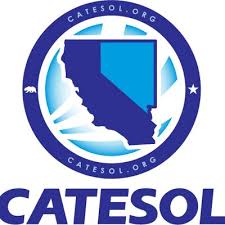|
PhD student Sharin Jacob presented at the California Association of Teachers of English to Speakers of Other Languages (CATESOL) Regional Conference in Los Angeles in March 2. CATESOL is an association of professionals advancing the quality of English language teaching and learning through professional development, research, standards, and advocacy. The 2019 conference theme was Fostering Growth, Learning, and Development. In her presentation Ms. Jacob addressed how multilingual students leverage their identities during computer science instruction.
Abstract In the last decade, considerable effort in the US has been dedicated to promoting equity in computer science education by broadening participation of students from marginalized and culturally diverse backgrounds. However, scholarship on promoting quality computer science instruction for linguistically diverse students is sparse (Jacob et al., 2018). As one of the fastest growing populations in US schools, language learners remain dramatically underrepresented in computer courses and careers (Martin, McAlear, & Scott 2015). This is likely due to lack of access to courses (Martin & McAlear, 2015), lack of diversity in the workforce (Royal & Swift, 2016), lack of representation in the media (Royal & Swift, 2016), and/or pervasive stereotyping in the field (Margolis, 2010). Given this limited experience and lack of relatable role models, students from diverse backgrounds may perceive members of the computer science discipline as being unlike themselves and lose interest in the field (Aish, Asare, & Miskioglu, 2018). This talk explores how multilingual students leverage their identities during computer science instruction to support the development of computational thinking practices and promote interest in computing. Results from student semi-structured interviews indicate that identity expression supports positive social and academic outcomes for multilingual students in computing. Comments are closed.
|
Resources for:
|
|


